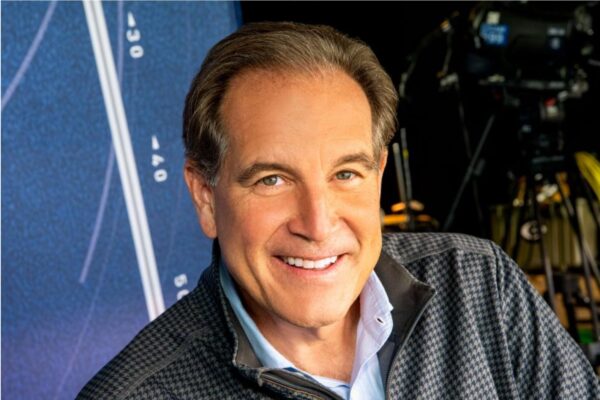By Zach Griffith | @ZachGriffith17
Sports Capital Journalism Program
MINNEAPOLIS — NCAA president Mark Emmert reiterated the organization’s stance against sports betting on Thursday while describing a process of monitoring state laws that could create widespread legalized gambling on college athletic events.
“The members have been fairly unequivocal,” he said when asked about rules that prevent college athletes from making legal bets. “And we’ve had a lot of debate on that recently, and the answer is yes, absolutely. We want a prohibition. The membership wants a prohibition of athletes gambling in any sports, period.”
Emmert’s comments mirror his stance on the issue from the NCAA Convention in January, when he maintained that legal sports betting would “threaten the integrity of college sports in many ways.” Ever since the Supreme Court decision last May that allowed states to expand legal sports betting, the NCAA has opposed gambling’s place in college athletics.
Eight states have established some form of sports wagering, and industry experts have estimated that as many as 30 could approve measures within the next five years.
“We argued that sports wagering shouldn’t be legal outside of the states where it already exists, and we lost that in court at the Supreme Court level,” said Emmert.
While maintaining his stance against the issue, Emmert outlined how the NCAA is proceeding in terms of federal guidelines concerning legalized sports betting.
“One of the things that we very much would like to see and are working hard toward, in conjunction with some of the professional sports leagues, is to try and have some federal guidelines around what individual state laws look like,” Emmert said. “Not to regulate the states or not to try and tell states how they have to do this, but to put in place some parameters so that all 50 states or whatever number decide to have legalized wagering have some consistency.”
Going back to his past comments on protecting the integrity of college athletics, Emmert said that services are being devised to police betting outlets.
“Another thing that we’re moving forward on aggressively is we need to have integrity services in place where we can effectively monitor what’s going on in all the various sports books so that, when we see inexplicable behavior on a betting line, we know what’s going on there, and we can act accordingly,” said Emmert. “All of those processes are in the works right now.”
The Supreme Court decision led the NCAA to suspend its policy of banning championship events from states with legalized sports betting. Now that the matter is a state issue, Emmert emphasized a need for further action.
“There’s been a temporary lifting of that policy, but it still requires a permanent legislative change,” said Emmert. “So that’s going to have to be introduced and discussed among the membership. I don’t want to presuppose where they’re going to go, but so far I haven’t heard any great objections to the position we’re in right now.”


